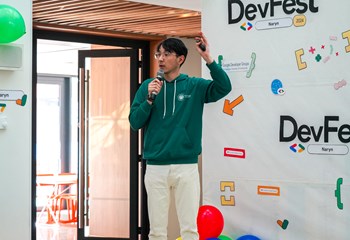
Call For Proposals: Quality Of Life Assessment In Naryn Oblast, Kyrgyzstan
The University of Central Asia (UCA) and the Aga Khan Development Network’s (AKDN) Quality of Life (QoL) Unit are pleased to invite project proposals to conduct data collection for (1) a household survey, using Android mobile devices, and (2) complementary qualitative research using small group discussions (discussed in more detail in the appropriate section).
Candidate: The selected provider will plan, coordinate, and collect (1) household survey data through household interviews in Naryn town and 38 villages in the rest of the Oblast and (2) conduct in-depth interviews and small group discussions in Naryn town and five villages in the rest of the Oblast.
Background information: Initiated in 2007, AKDN’s Quality of Life (QoL) assessments aim to monitor changes in the QoL of people living in select areas where AKDN’s agencies operate. These assessments help to inform AKDN of the different ways in which people’s lives are changing and bring attention to the issues that are most important in influencing perceptions of what is a good or poor QoL. They also shed light on how the broad changes, which affect a given area over time, impact people’s lives. QoL assessments provide AKDN with the opportunity to reflect on whether and how its programme interventions are contributing to change. The findings are used to help AKDN agencies identify gaps and consider adjustments to their programme strategy.
Timeline: The expected time of engagement is as follows:
- for the household survey, from the award of the contract through early May 2025, and
- for the qualitative component, likely through the end of June 2025.
The exact dates for certain activities to take place (and duration of days) are discussed in the appropriate sections within this call for proposals.
The consultant should prepare an appropriately detailed timeline of expected data collection as part of their submission.
- Household Survey
Details of the household survey research: The household survey sample of 1200 households for the household survey will be divided into two strata – 400 in urban areas (Naryn town) and 800 in rural areas (the rest of Naryn oblast). The data will be collected within Naryn town and in 38 villages (40 clusters) across Naryn Oblast, with each questionnaire taking approximately 30 to 45 minutes to administer. The fieldwork will be carried out by 5 teams, each consisting of 4 enumerators. The questionnaire will be programmed on a tablet with built-in instructions, prompts and data checks and the pre-programmed tablets (20) will be provided by UCA. Each enumerator will be expected to complete 4 to 5 questionnaires per day. Given the sample size and the expected number of questionnaires to be completed per day and per enumerator, the data collection is expected to take approximately 20 working days in April.
Company qualifications:
- Demonstrated experience in collecting data through household surveys focusing on household-level and individual-level information;
- Demonstrated experience in survey implementation using mobile data collection in Kyrgyzstan;
- Ability to form a team of qualified local enumerators (5 teams, each comprising of 3 enumerators and 1 supervisor), led by an experienced Project Manager who would be responsible for overseeing the implementation of the survey activities and guaranteeing quality control;
- Willingness to follow a detailed study protocol outlining the procedures to follow for data collection, using an ODK app programmed and prepared by the mandating entity;
- Fluency in Kyrgyz and ability to communicate in English;
- Ability to follow good ethical conduct and ensure entrusted information is safeguarded from unauthorised access, use, disclosure, modification, loss, or theft.
Expected Results:
- Translation:
- Survey questionnaire
- ODK form – prompts, instructions, warning messages, guidelines
- Pre-test of select survey modules (25 HHs);
- Development of a detailed fieldwork plan for the urban and rural strata;
- Prepare maps for Naryn town and sampled villages to identify the randomly selected points from which to select households for the interviews;
- Pre-test of mobile survey (15 HHs);
- Participate in a 6-day training, organised by UCA/QoL, which will take place in Naryn between 10.03.2025-18.03.2025;
- Organise a pilot day at the end of the training – 18.03.2025;
- Manage the work of the 5 teams and ensure that each enumerator completes the expected number of interviews per day (4-5);
- At the end of each day, upload the collected data to an aggregate server;
- Track the gender of respondents and ensure that there is a balanced representation;
- On a daily basis, complete the translation of free text, entered in the ‘Other, please specify’ answer categories, using a fieldwork monitoring platform (prepared by QoL);
- Keep track, good care and assume full responsibility for the mobile devices (tablets), provided by UCA;
- Expected time of engagement – from the award of the contract through early May.
- Qualitative research component
Details of the qualitative research: The qualitative research will consist of activities conducted in six research locations, which include Naryn town and five other locations across the Oblast (total of six):
- Jergetal (Ak-Taala district);
- Jer-Kechku (Naryn district);
- Kara-Suu (At-Bashy district);
- Kochkor (Kochkor district);
- Bash-Kugandy (Jumgal); and
- Naryn town.
Small group discussions: Small group discussions, (each comprised of two, three or four individuals), will be conducted in each of these sites. Small group discussions are facilitated, semi-structured discussions among a small number of people. They are a research tool somewhere in between semi-structured interviews and larger focus group discussions. A dedicated checklist of questions and topics is prepared for the discussion, but the format also allows for more flexibility than a semi-structured interview. Small group discussions are appropriate for this research and in these locations because the population of some of these research sites is rather small, and the research team does not want to overburden local communities The small group discussions will be conducted on the following topics:
- livelihoods, basic services and natural resources (general adult population);
- access to and quality of health services (general adult population);
- access to and quality of education services (general adult population);
- gender and intergenerational relations (older adults 30+);
- gender and intergenerational relations, aspirations and concerns (younger adults 18-29);
- migration (general adult population of households with migrants);
- community organisation, social participation (general adult population);
- perceptions of AKDN and UCA (general adult population).
This means that a total of nine discussions will take place in each research site, for a total of 54 discussions overall. A copy of the discussion checklists will be provided to the consultants by the commissioner.
This research will be complemented by a minimum of nine Key Informant Interviews with at least one topical expert in the following domains, and in particular, those with expert knowledge of the Naryn Oblast context:
- Livelihoods and Employment dynamics
- Food security and nutrition
- Financial services and access to finance
- Infrastructure and built environment
- Natural environment and climate change
- Health services, including questions of access and quality
- Education services, including questions of access and quality
- Migration and migration dynamics
- Community life, civil society, and community associations
A copy of the interview guide will be provided to the consultants by the commissioner.
The final schedule and determination of research activities will be determined in consultation between the commissioner and the consultants.
Company qualifications:
- Demonstrated experience in facilitating, collecting and recording (in writing and/or audio) high-quality data collected through small group discussions;
- Knowledge of the socio-cultural context of Naryn oblast, with demonstrated experience in conducting research in Naryn Oblast;
- Ability to form a team of qualified local discussion facilitators and note-takers, led by an experienced Project Manager who would be responsible for overseeing the implementation of the qualitative activities and guaranteeing quality control;
- Willingness to follow a detailed study protocol outlining the procedures to follow for data collection;
- Willingness to prepare and provide high-quality notes and/or transcripts;
- Fluency in Kyrgyz and ability to communicate in English;
- Ability to follow good ethical conduct and ensure entrusted information is safeguarded from unauthorised access, use, disclosure, modification, loss, or theft.
Expected Results:
- Translation of discussion and interview checklists, consent and study guidelines from English to Kyrgyz;
- Pre-test qualitative tools;
- Development of a detailed fieldwork plan for the research sites;
- Participate in a five- to six-day training, organised by UCA/QoL, which will take place in Naryn between 10.03.2025-18.03.2025;
- Organise a pilot day at the end of the training – 18.03.2025;
- Manage the work of the research teams and ensure that the research team completes the expected number of discussions and interviews according to the fieldwork plan;
- Using a standardised format, prepare detailed written notes or transcripts of discussion and interview data in Russian.
- Expected time of engagement – from the award of the contract, likely through the end of June (the consultant will prepare an appropriately detailed timeline of expected data collection as part of their submission).
- Submission of Proposals
How to Apply: All the appropriate candidates should send their commercial proposals, outlining the consultant qualification, expertise, and budget by 10 January 2025 to madina.junussova@ucentralasia.org
The commercial proposal should contain:
- Short description of the experience in conducting similar surveys and qualitative research in Kyrgyzstan;
- Qualifications of the survey team members and qualitative data collection team members;
- Proposal of how to use maps of sampled survey locations to select respondent households;
- Proposal of how to select respondents for the qualitative small group discussions and proposed suggestions on individuals (by name or type/job of individual) who would be appropriate for key informant interviews.
- Draft budget for proposed sampling strategy (1200 households – 400 Urban and 800 Rural) or strategies to carry out the assignment;
- Short description of the suggested remuneration methods for the study interviewees/respondents.
We will notify shortlisted candidates for further details and procedures.













